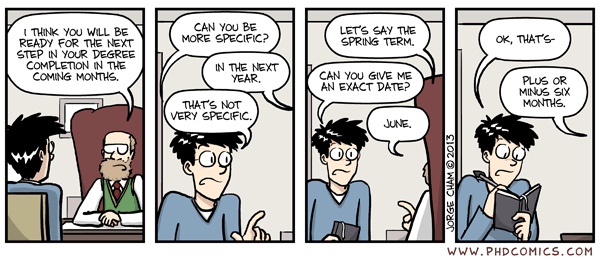
The psychology workforce is a numbers game. But with the internship crisis, are we winning or losing? (Source: Numbers by Stimpdawg on Flickr. Some rights reserved.)
Given that 1 in 4 students who enter the APPIC match do not actually match (and nearly 1 in 2 fail to match directly from APA accredited programs to APA accredited internships – see #11) it seems natural to entertain the idea that we have too many trainees. Or that we are producing too many psychologists who are flooding the market, cheapening the field, and so forth. But is any of this really true?
Researchers Parent and Williamson (2010) did find that some programs contribute disproportionately to the match imbalance by sending significantly more students on internship each year. That might be enough for some to jump to the conclusion that these programs are just too big. Although, I ask: too big for what?
See, I worry that the internship crisis is causing us to identify red herrings, or fake culprits. While lots of students are unequivocally a problem in the crucible of poor match rates and failed matches, this doesn’t say anything about the need for more or less psychologists in the workforce.
Whether you agree or disagree with Malcolm Gladwell, who said in his latest book that we should stop connecting class size with educational outcomes, it’s important to think through what a change in the number of healthcare providers means in the United States. As a baseline, I found that about 5,400 people sit annually for the EPPP, our profession’s licensing exam and on average, 3,800 pass the exam each year. And now I’ll provide three and a half data sources suggesting we may actually need more psychologists in years to come:
1) New psychologists are finding jobs. According to the latest data we have available—the Doctorate Employment Survey (APA, 2011)—psychologists within one year of graduation had an unemployment rate of 6%, at least 2-3% points lower than the historical national average. More than two thirds of graduates had a job within the first three months of completing their programs and 72% said their current job was their first preference.
2) NAMI estimates that 11 million people in the U.S. with mental illnesses lack insurance coverage. The Affordable Care Act (better known to some as Obamacare), combined with our earlier Mental Health Parity and Addiction Equity Act, will bring more people than ever before into our nation’s insured healthcare system, almost certainly increasing demand for mental health services.
3) As of January 1, 2014, the United States counted 3,896 known, designated mental healthcare professional shortages across the country. These are shortages of core professionals—psychologists included—that by definition cannot meet the basic mental health needs of whole geographic areas, specific facilities, and/or underserved groups before there are so few practitioners relative to the population. Every state has a demand for more mental health care in some way or other.
3.5) As of this month, the US Bureau of Labor Statistics estimates increased employment of 18,700 psychologists by 2022. They say, “Employment of clinical, counseling, and school psychologists is projected to grow 11 percent from 2012 to 2022, about as fast as the average for all occupations. Greater demand for psychological services in schools, hospitals, mental health centers, and social services agencies should drive employment growth.” Notes: This estimate doesn’t cleanly separate the need for doctoral-level psychologists from those with Masters training, and also includes non-health-service psychologists. This data point only gets a “3.5” instead of a standalone “4” because the newly released BLS numbers are not as strong as they were a month ago (a 2010 to 2020 projection), and I’m curious to see what this means for workforce demand. You can see how projections are calculated here.
If you are quick to ask for smaller class sizes, especially in light of the internship crisis, it is crucial that you have some understanding about how this could impact our nation’s ability to care for its people. For what appears to be a problem in one light may actually be a solution in another.
My data points are by no means a substitute for a workforce analysis, and one is needed to definitively answer the question: Just how many psychologists do we need? (An even better analysis would tell us where in the country to send providers based on their training.) If we come to find that we actually need more psychologists than there are internship positions, what else can we do to responsibly get rid of this bottleneck in the internship match? That’s the real million dollar question.


 This spring, a group of APAGS members recorded a
This spring, a group of APAGS members recorded a 
